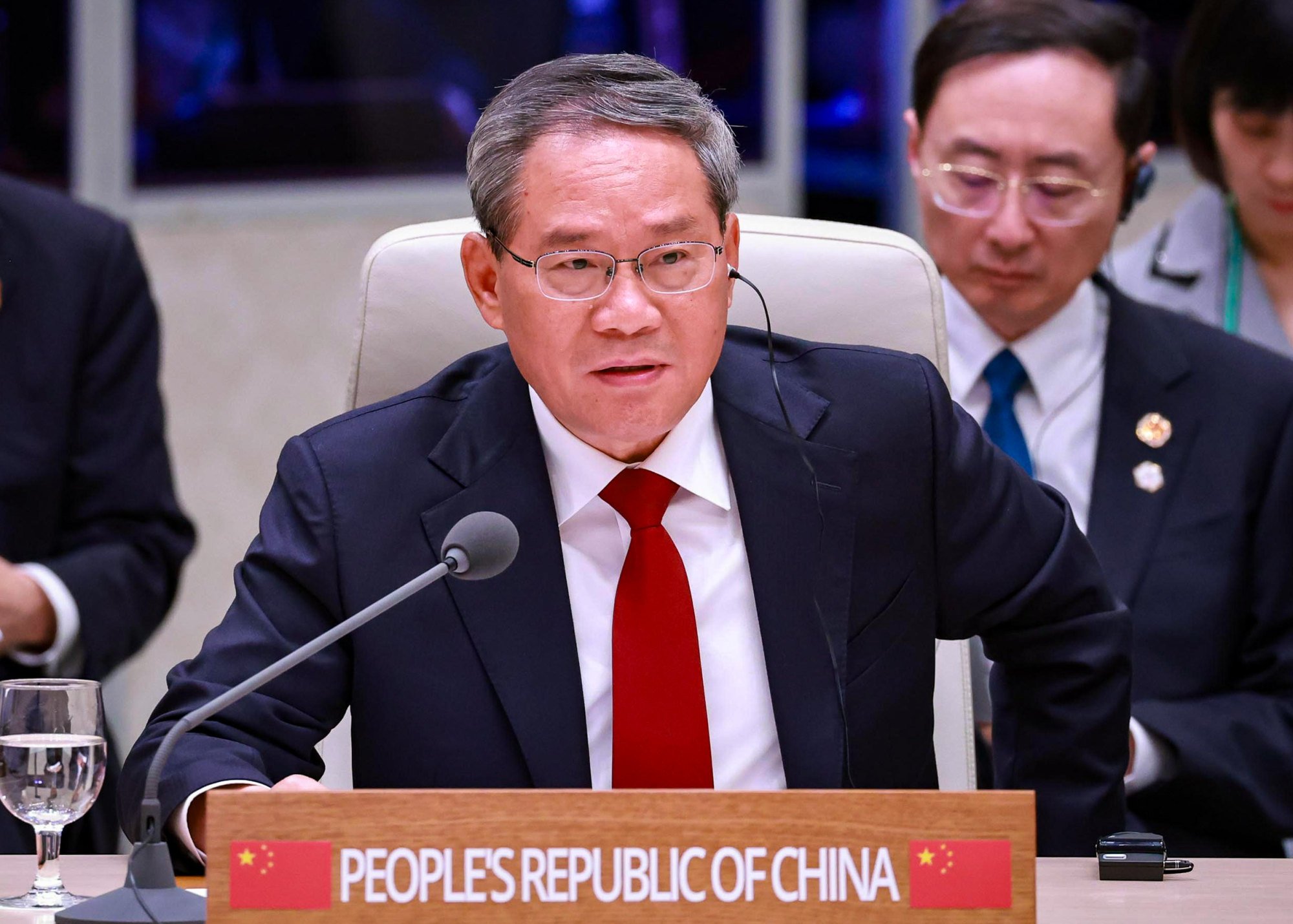
China, Japan, South Korea vow to work together to keep supply chains stable
- Leaders also pledge to cooperate on denuclearisation of the Korean peninsula, during trilateral summit in Seoul
- Chinese Premier Li Qiang raises concern over Tokyo and Seoul joining US efforts to form bloc aimed at containing China
The dialogue had been suspended for more than four years because of the Covid-19 pandemic and strained ties between the neighbours.
In a joint statement released after the meeting, the three leaders said they would “continue to work to ensure a global level playing field to foster a free, open, non-discriminatory, transparent, inclusive and predictable trade and investment environment”.
“We also reaffirm our commitment to keeping markets open, strengthening supply chain cooperation and avoiding supply chain disruptions,” the statement said, adding that there was a consensus to continue communication on export controls.
It comes as Beijing is pushing back against tightening US export rules that target China’s semiconductor industry over national security concerns.
Japan and South Korea have strengthened ties with each other and with the US in recent years and play a central role in Washington’s strategy to deny China access to advanced chipmaking equipment and technology.
During Monday’s trilateral talks, Li expressed Beijing’s concern over Tokyo and Seoul joining US efforts to form a bloc aimed at containing China, stressing the need for “honest dialogue” to build greater mutual trust and resolve doubts.
“We must uphold the spirit of strategic autonomy and maintain our bilateral relations. And we need to promote multipolarity in the world and oppose the formation of blocs or camps,” Li was quoted as saying by Associated Press.

The leaders also agreed to accelerate talks on a three-way free-trade agreement that has been stalled since 2019.
It also acknowledged the importance of denuclearisation on the Korean peninsula and stressed the willingness of the three nations to make positive efforts for the political settlement of the Korean peninsula issue.
“We reaffirmed that maintaining peace, stability and prosperity on the Korean peninsula and in Northeast Asia serves our common interest and is our common responsibility,” the statement said.
But there was no mention of “complete denuclearisation of the Korean peninsula”, which was the consensus during the last trilateral summit.
During the summit, Yoon and Kishida called on Pyongyang to refrain from carrying out the planned rocket launch. Li did not mention the launch but urged all parties to exercise restraint.
Zhang Yun, an associate professor of international relations at Niigata University in Japan, said the emphasis on supply chain stability “could be about tacit non-compliance from Tokyo and Seoul when it comes to US-led efforts to use trade protectionism to achieve its so-called economic security against China”.
He said the US’ economic pressure on China, such as increased tariffs and export controls with other countries, could harm Japan and South Korea since the supply chains in East Asia were highly integrated and interdependent.
Zhu Feng, executive dean of Nanjing University’s School of International Studies, said trilateral cooperation between the neighbouring countries had “reached a crossroads” amid the US’ strategic competition policy against China.
He said it was politically significant that the trilateral summit had resumed.
“The issue now is to what extent Tokyo and Seoul will follow Washington’s strategy – will they completely follow the US lead, or will they still maintain some of their own interests and strategy?” Zhu said.
“This is something we need to observe going forward.”

